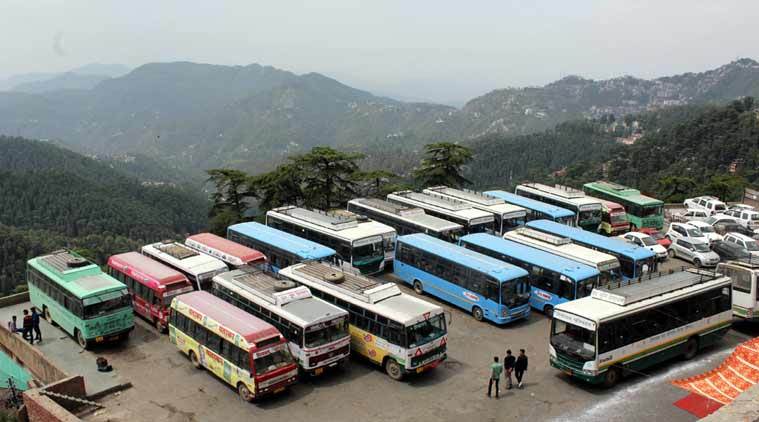 The Cabinet decided to increase the bus fare because of the fund crunch due to Covid-19 pandemic. (File Photo)
The Cabinet decided to increase the bus fare because of the fund crunch due to Covid-19 pandemic. (File Photo)
The Himachal Pradesh government on Monday decided to increase the bus fare by 25 per cent and also increased the minimum fare for the first three kilometres from Rs 5 to Rs 7, a move that was opposed by the opposition Congress which termed it “anti-people”.
The decision was taken in a Cabinet meeting chaired by Chief Minister Jai Ram Thakur.
There will be an increase of 25 per cent in the present per kilometre tariffs for all travellers beyond three kilometres for hilly and plain areas. The current ordinary bus fare in the state (before the hike) for ordinary buses is Rs 1.12 per km for the plain areas and Rs 1.75 per km in the hills. The deluxe bus fare is Rs 1.37 per km and Rs 2.17 per km in the plains and the hills, respectively, while the fare for Volvo and air-conditioned buses is Rs 2.74 per km in the plains and Rs 3.62 per km in the hills.
The Cabinet decided to increase the bus fare because of the fund crunch due to Covid-19 pandemic. This is the second hike in bus fares by the current government – in September 2018, the fares had been increased by 24.44 per cent.
The opposition Congress said that it would hit the streets if the decision was not rolled back. “This is an anti-people decision. Hike in diesel prices has already hit the people hard. Today, even bus travellers have not been spared. The Congress is not going to sit silently on such decisions,” said Kuldeep Singh Rathore, state Congress president.
Meanwhile, the Cabinet also decided to withdraw the facility of free travel in Himachal Road Transport Corporation (HRTC) buses given to MPs and MLAs within and outside the state. The facility would continue, however, for former MLAs and MPs.
It also approved the replacement of 38 ambulances in the state under the National Ambulance Service-108, the opening of a new government primary school at Lower Tharedi in Gram Panchayat Bakan in Bharmour assembly constituency, and the conversion of 34 employment guarantee scheme (EGS) instructors into Gramin Vidya Upasaks.
During the meeting, the industries department held a presentation on ‘ease of doing business’ in the state, stressing on the development of online systems for 46 services provided to the entrepreneurs. The cabinet approved the reforms.
The Cabinet also authorised the IT department to purchase 16 workstations required for an e-Cabinet.
Among other decisions, the Cabinet gave its nod to fill up three posts of junior office assistant (IT) in the prosecution department on a contract basis, and convert 771 vacant posts in the cadre of assistant librarians in the education department into junior office assistants (library).